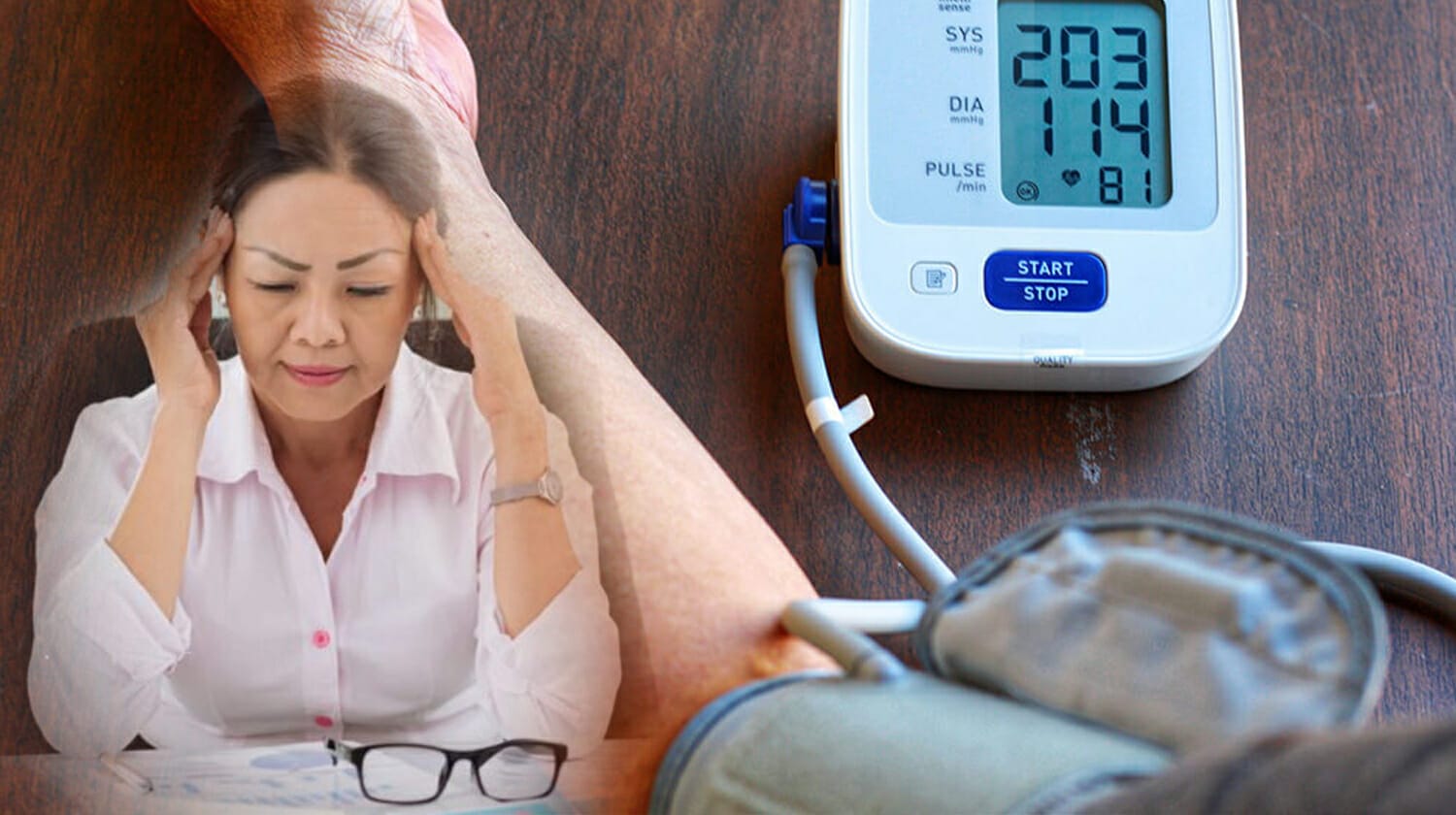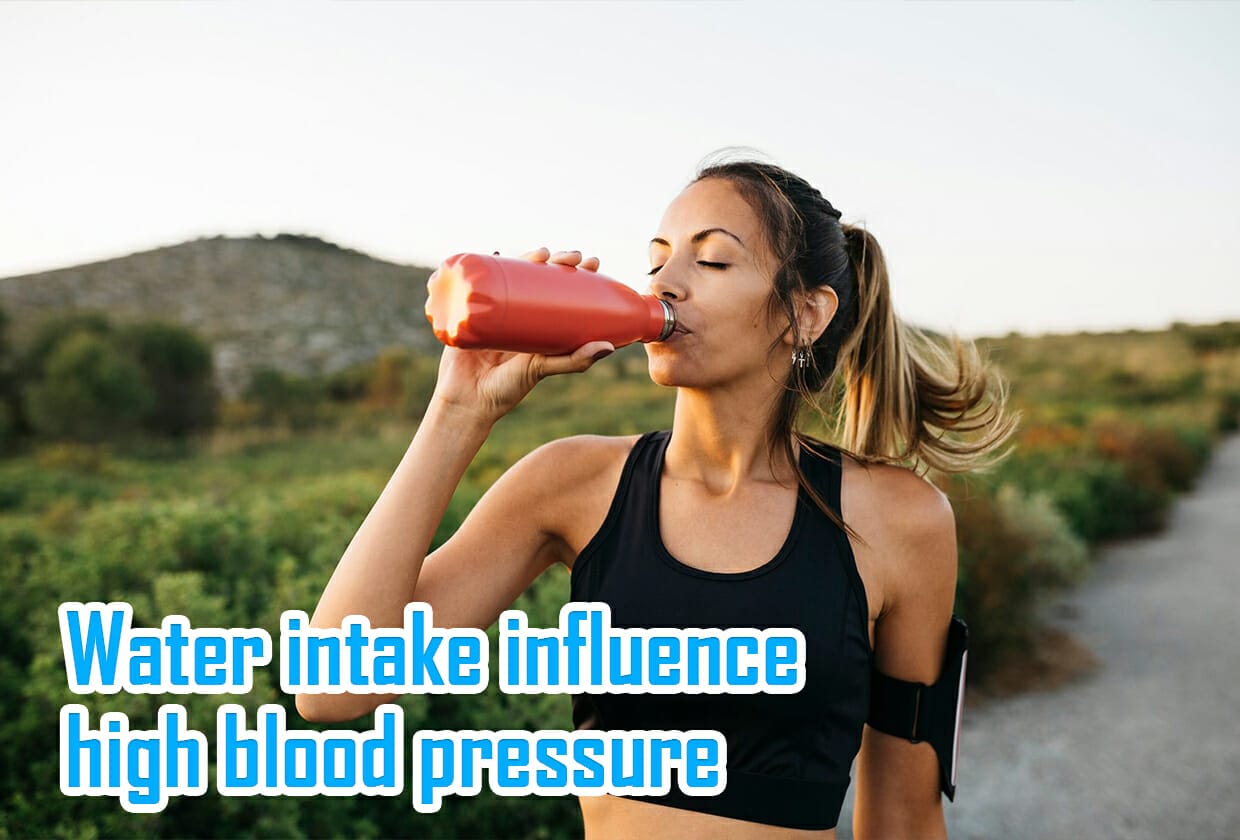High blood pressure can be a huge threat to your health. Too much pressure in the arteries is dangerous, but high blood pressure can lead to stroke and heart attack. Knowing how much water you need and how to drink it is important if you're living with hypertension.
Knowing how much water can keep your blood pressure in check is essential. This guide will teach you about the different types of water and how to measure your blood pressure. So, let's read on.

High blood pressure, known medically as hypertension, is one of the most important risk factors for cardiovascular disease. It affects about half of American adults over 40 and nearly three out of four people over 60.
Blood pressure is measured by taking the average of several measurements taken over minutes. A person's blood pressure usually stays relatively steady throughout the day, rising slightly during exercise and falling slowly as you relax.
But some days, your blood pressure might rise quickly and remain elevated for hours. This is called acute hypertension.
Symptoms of high blood pressure include headaches, dizziness, chest pain, shortness of breath, fainting, vision problems, leg swelling, fatigue, and nausea. High blood pressure can lead to stroke, kidney damage, heart attack, congestive heart failure, and death if left untreated.
In addition to lifestyle changes such as losing weight, quitting smoking, eating less salt, and exercising regularly, some medications can help lower blood pressure.
Some antihypertensive drugs work better than others, depending on what underlying cause is causing the problem. However, even though there are many different types of medication, there are few side effects.
How does water intake influence high blood pressure?

Your blood pressure's systolic or diastolic reading must be 140 mm Hg or higher.
Hypertension is associated with dehydration. It is, however, a relatively unexplored area of research. The connection needs to be further investigated.
It should be remembered that there is still a lot of research that needs to be done, but one thing that should be noted is that dehydration can increase blood pressure due to vasopressin.
When your blood volume is low, or the concentration of sodium or solutes is high, the vasopressin hormone is released. You can experience both of these problems when you lose too much fluid.
Your kidneys reabsorb water when you're dehydrated since your body absorbs water instead of passing it through the urine. Blood vessels can also constrict when vasopressin concentrations are high. Blood pressure can rise as a result.
How Much Water Should You Drink If You Have High Blood Pressure?
If you have high blood pressure, you should drink at least 8 glasses of water a day. You should also drink fluids throughout the day, especially before meals, exercise, and sleep.
However, drinking more than 12 glasses of water daily can increase your risk of developing arrhythmias (irregular heartbeats).
Human hearts contain 73% water, so no other liquid can control blood pressure more effectively. However, according to studies, calcium and magnesium-enriched water can reduce blood pressure.
The causes of dehydration:
Dehydration occurs when your body loses too much water. You lose water daily through breathing, urination, sweat, tears, and even digestion. Dehydration happens when your body doesn't replace the water it loses quickly enough.
Other things can cause dehydration, including illness, medications, pregnancy, diarrhea, vomiting, and heatstroke. Sometimes, people don't realize they're dehydrated because they feel thirsty, but their bodies aren't getting enough fluid.
If you think you might be dehydrated, check out our guide to help you determine if you need to drink more.
Benefits of drinking water for high blood pressure:
Lack of water can cause your body to become dehydrated. As a result of dehydration, the blood becomes thicker. You may experience spikes or drops in your blood pressure as a result.
Vasopressin is released when the body lacks water, although more research is needed to determine whether dehydration contributes to high blood pressure. Blood pressure increases when vasopressin levels are high.
An excess of sodium in the blood causes the body to secrete vasopressin. The body may also secrete the hormone when the blood volume is low. Losing too much fluid can cause both conditions. Rather than passing water through your urine, you will have to reabsorb it when dehydrated.
High blood pressure may be reduced with adequate water intake to maintain the hydration of cells and organs. What is the recommended daily amount of water?
Six to eight glasses of water should be consumed each day. Several factors affect your daily fluid intake, including The following factors determining the age of each participant: male or female, weight, overall health condition, and whether they are pregnant or breastfeeding.
Tips for ensuring you drink enough water if you have high blood pressure.
If you have high blood pressure, it's important to drink enough water. A water bottle with a filter and plenty of water will help you stay hydrated on long trips.
You can also set reminders to drink water or add water to your diet in other ways to make sure you're getting enough fluids.
Setting reminders to drink water
Another way to ensure you drink enough water is by setting reminders. For example, if you have a work meeting coming up, you might want to remember to drink water before the meeting starts.
Or, if you often go for walks in the park after work, you might want to remind yourself that dehydration is not an attractive feature on your resume.
Adding water to your diet
You can also add water to your diet. This includes adding water-based drinks like tea and coffee and foods like soups, salads, and fruit juices.
Drinking water during the day
Drinking water throughout the day rather than just before bedtime is best. Your body temperature drops as you fall asleep, and this causes your blood pressure to drop. As a result, your blood pressure may dip below normal levels while you sleep.
Drinking water before meals
It's best to avoid drinking large amounts of water right before eating. This could cause stomach cramps or diarrhea. Instead, try having a glass of water about 30 minutes before each meal.
Drinking water with food
When you eat, your digestive system breaks down food into smaller pieces. These small particles pass through your intestines and enter your bloodstream. The small amount of water in these particles helps keep your blood from becoming too thick.
When you drink water with food, you dilute the water content of the food. This means less water passes through your intestines and enters your bloodstream. In addition, the water in the food slows digestion, allowing you to feel full longer.
Drink water with caffeine
Caffeine stimulates your brain and nervous system. It also increases your metabolism. Caffeinated beverages such as coffee, tea, and soda can be helpful if you need the energy to get things done.
However, they can also lead to dehydration because they don't replace lost fluid.
Frequently asked questions
1. High blood pressure: what are the best treatments?
It has been shown that lifestyle changes can be just as effective as treating high blood pressure and medications for high blood pressure.
2. Do I have a healthy weight based on my height?
If you want to know how much you should weigh based on your height and weight, you should consult your doctor about your body mass index (BMI).
3. What are the common water-related health concerns?
Your digestive system and kidneys can be stressed if you drink more than 96 ounces of water daily.
4. What to drink to bring BP down?
In addition to water and fruit juices, pomegranate, prune, cranberry, cherry, vegetable juices, tomato, raw beet, tea black, green, and skim milk, other drinks can lower your blood pressure.
5. Do bananas lower blood pressure?
Bananas have been shown to lower blood pressure, but you might not know that. Potassium is an important mineral for lowering blood pressure in this fruit. This is because potassium maintains the body's sodium balance.
Conclusion
It's important to drink enough water if you have high blood pressure. The recommended amount of water for high blood pressure is enough to meet your needs, but it's also important to be aware of the risks associated with not drinking enough water. I hope this article has given you enough idea of water intake if you have high blood pressure.






